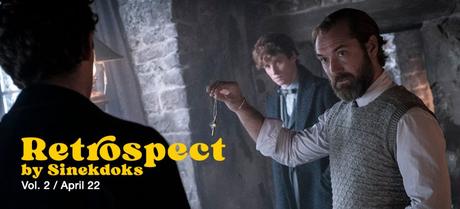
Cinema went on a pop-culture pilgrimage during the first couple of weeks in April 2022. Each of the new release feels like walking down the memory lane — from revisiting Ultraman from the old TV era, side-scrolling Sonic the Hedgehog on SEGA Genesis, to taking sorting hat quizes over and over again just to make sure you’re 100% Gryffindor material. That’s how this volume pops the nostalgia.
From the Theatre
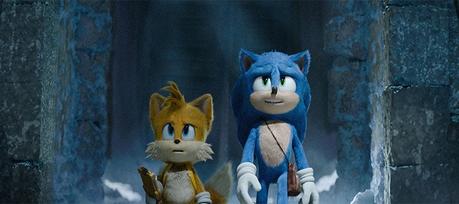
Sonic the Hedgehog 2
The flashy blue hedgehog brings the nostalgia hot and hardcore. Following the defying-gravity moment in the first film, the sequel attempts to up the game by bringing out fan-favorite characters on-screen. The two-tailed fox, Miles ‘Tails’ Prower, was hinted at before; while, Sonic’s antithesis, Knuckles the Echidna, was only brought up in the promotional trailer. On top of it, Jim Carrey’s Eggman got a fan-service makeover that looks more like the game counterpart.
The problem is, that this sequel could not quite trail the predecessor. The quick-paced, straightforward plot that puts forward functionality is still the main driving force; however, the narrative opts for more exploration this time. Without taking time to slow down and let the exploration sink in, Sonic the Hedgehog 2 expectedly met some speed bumps en route. The run is made worse with the superfluous human plot that adds nothing to the whole structure.
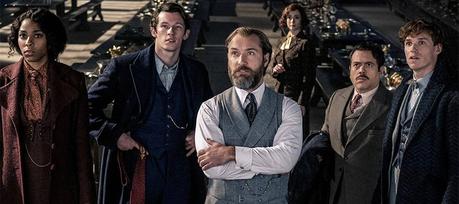
Fantastic Beasts: The Secrets of Dumbledore
Before every Fantastic Beasts entry, there should have been a terms-and-conditions checkbox asking for agreement and acceptance that it is not (and will not be) the Harry Potter saga you’re looking for.
As it stands, the franchise seems to be a mode to enrich the Wizarding World lore with more content for side characters or some previously baffling trivia — all written by JK Rowling. However, the Fantastic Beasts series end up getting bloated with disposable characters and a convoluted narrative that makes little sense.
At least, The Secrets of Dumbledore proves two points that plague the series since the start. First, it goes to show that this story has, so far, no focal points. Eddie Redmayne’s Newt Scamander feels almost like a red-herring; his fantastic beasts are purely cameos. Second, the overarching plot is basically a pile of set-ups with no punchline. Unlike Harry Potter, in which each entry feels episodic but knotting a consistent red thread; Fantastic Beasts feels like a 15-hour film broken down into several films. The flow doesn’t feel natural, at all.
The only good news to cherish is the new incarnation of Grindelwald. Mads Mikkelsen brings a more nuanced dark wizard, whose suppressed yearning and loathsome nature make a perfect irony for the confrontation against Jude Law’s Albus Dumbledore. Unfortunately, the never-ending set-ups make this better Grindelwald is once again underused — which would be a recurring complaint to this franchise unless there’s a sudden twist in the next entry.
After all this time? We still haven’t got the answer to why Dumbledore traded his three-piece suits for robes.
To Stream Now
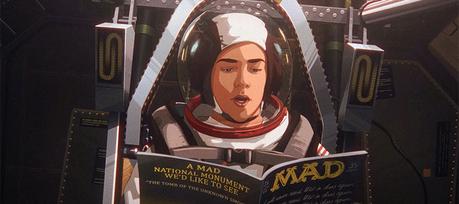
Apollo 10 1/2: A Space Age Childhood
Richard Linklater has returned to his orbit with his SXSW hit, which was picked up by Netflix. Moon-landing memories might not be relevant anymore for younger audiences (or Netflix’s target demography), but these stories are something to hold dear for those living through that era. For Linklater, it’s a story that affects himself deeply and, coincidentally, it’s also a story that can accommodate a hybrid of his flairs — aesthetically and thematically.
The rotoscoping visual isn’t a mere throwback to his previous works — Waking Life and A Scanner Darkly. It’s a zeitgeist of Saturday morning cartoons from the depicted era. The style juxtaposes with Linklater’s signature slice-of-life plot unbound by any narrative trajectory. The leisure brings back Dazed & Confused vibes, meanwhile, the intimacy is Boyhood-like. That combination bypasses the outdated memory with sincerity.

Metal Lords
Peter Sollett (Nick & Norah’s Infinite Playlist) marks his directorial come-back with another story about humanity’s relationships seen through the sound of music.
Through Metal Lords, written by Game of Thrones showrunner, DB Weiss, Sollett invites audiences to re-acquaintance with metal — just like a teenager discovering metal music for the first time. It’s full of confrontation within, from faux idealism, and hot-blooded revolting spirit, to the art of listening beyond the music. The coming-of-age theme has everything to embrace those confrontations; but, the cliche-ridden plot isn’t quite rock-solid to accommodate them all.
The dynamics between Jaeden Martell’s nerdy character and Adrian Greensmith’s edgelord persona might sound like some inside references; but, they are as honest as they can be. Furthermore, the high-school band cliche flows naturally & engagingly even for non-metal fans. The cameos, albeit not in the most perfect timing, are the cherry on top — an invitation to metal-heads for a little nostalgia.
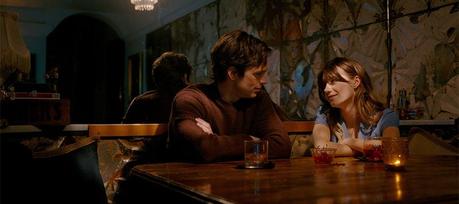
Fresh
If romcoms have signature meet-cutes; Fresh (Mimi Cave, 2022) has a meat-cute instead. Its pulpy yet clever script grinds together bleak comedy with tongue-to-cheek thriller & a wicked romance (predatory dating culture, in particular) that can be a bit on-the-nose sometimes, but on-point most of the time. Lauryn Kahn’s script is full of foreshadowing dialogues that are often hilarious and forthright.
Obviously, this romance-thriller isn’t the freshest (pun intended) among the slasher sub-genre. Yet, what makes it work is Sebastian Stan’s rendition of the character. Stan, who begins to develop the typecast of red-flagged cishet man (in I, Tonya and Pam & Tommy, for instance), brings quite a personality to the same ol’ creep.
We’ve seen this before. Different sins, different faces, same soul — Patrick Bateman or Joe Goldberg from recent history. They’re all monsters, but there’s something playful inside of them. Stan’s got that affluent charm, too — the gravity to makes us root for him, even when the character has any believable development. When you think of Fresh in the future, it will always be about him.

King Richard
Among many available angles, King Richard (Reinaldo Marcus Green, 2021) bizarrely chooses to go with the story of the man behind Venus & Serena Williams’ success — Richard Williams. While it makes a good biopic material that can easily be marketed with words like ‘untold inspiring story,’ this angle feels a little condescending. It’s a man’s world, after all.
When seen as an independent sports biopic—the bias aside, Zach Baylin’s script, however, stays true to the angle — making it top-class albeit being a tad too crowd-pleasing. The narrative is well-structured and, importantly, engaging. Furthermore, Will Smith’s on top of his game as the titular character in an attempt to atone for undermining a far more powerful story.
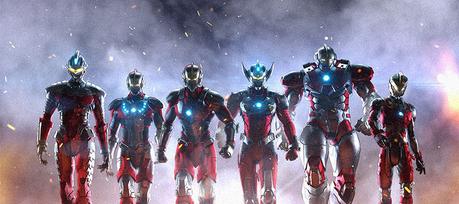
Ultraman
Entering the second season of Netflix-produced ULTRAMAN, the iron-clad, ultra-powered special force begins to feel comfortable doing their ultra duties. While the human-sized Ultramen seems awkward, still; this show (adapted from same-titled manga) is the closest you can get to the OG ultra-spandex show from the 1960s.
Shinjiro Hayata, the protagonist, is the son of the original Ultraman, Shin Hayata, who has no longer connected to the being of lights. The second season begins with a more confident Shinjiro working under Dan Moroboshi’s tutelage (Moroboshi is the original UltraSeven). Meanwhile, Seiji Hokuto is now more cooperative while donning the Ace costume under Bemular’s mentorship.
The basic plot of the new season is the unholy Ultra-brothers’ reunion — with Ultraman, UltraSeven, Ace, and the big brother, Zoffy, team up with Jack and Taro to save the Earth. With a light-speed pace, the narrative takes a little time for the exposition — letting Jack and Taro dissolve rather unnaturally but effectively into the story. The rest of it is a straightforward action bonanza executed with smooth and crowd-pleasing animation.
The downside is, that the 6-episode rampant is too short for a party this big. By the time the Ultra-brothers get together, there’s nothing left to do but set up another pay-off for the next season. The flashy pace seems to sacrifice the enticing backstory of Kotaro Higashi a.k.a. Taro — whose inhumane ability awakened in a different way compared to Shinjiro in the first season. Whatever that might be, they will pick it up right away in the sequel.
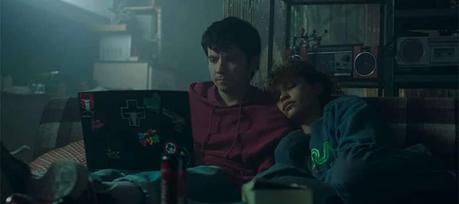
Choose or Die
This retro tech-horror was originally titled CURS>R just like the on-screen MacGuffin, a text-based horror game that has the ability to alter reality. The rule is simple: choose or die; hence, the final title.
Frankly, the original title sounds more badass for this pulpy story and it seems more malignant, knowing that the plot will eventually drift from the traditional choose-or-die dilemma and become, well, anything but. Once the plot lost momentum, it never regains it back and instead attempts to prolong the duration with a series of nonsensical acts.
Asa Butterfield and Iola Evans had their moments, too, amidst the unsettling first half of Choose or Die. Yet, the plot will eventually deny their importance before descending into total banality.
This is the end of Retrospect by Sinekdoks, vol. 2. You can check the Indonesian version of this newsletter on Instagram (@bysinekdoks). See you soon.
View this post on InstagramA post shared by By SINEKDOKS (@bysinekdoks)
